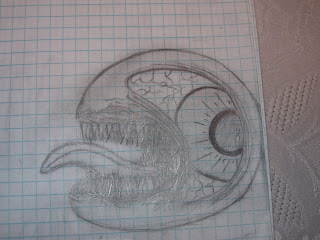(I definitely need to come back and edit this later)
I can reasonably say that I don't have COVID. Caitlin and I received negative tests. If we were exposed last sunday, then we are still in the incubation period. However, Mariah, our dear vector, tested positive last week but tested again this week and came back negative; last week was probably a false positive. She has been getting tested twice a week at her work. I suppose a false-positive was bound to happen at her place of work eventually. It's just funny that it happened to her.
...
I'm doing intermittent fasting with the help of a half-dose of BronkAid (over the counter ephedrine) in the morning paired with black coffee. I'll start going on walks in the morning soon. I've been too sedentary. I'm looking forward to having a gym again.
I feel weird admitting that I'm using ephedrine, but it's the truth. And I'm aiming for honesty here.
From a phenomenological (subjective) perspective, it doesn't feel like much is going on. My head is a little quieter. I'm not hungry. I can breather more clearly (surprise surprise). I feel more focused, but not by much.
I had an adderall prescription some years ago, and that significantly altered my state of being—and not in a good way either. The difference between half a dose of BronkAid and a 30mg dose of Adderall is like comparing drinking half a glass of wine to two or three back-to-back tequila shots. Maybe a full dose of Bronk will upgrade the experience to a full glass of wine.
...
Oh, here's a big one:
I'm in the early stages of limiting my meat consumption for ethical reasons. I finished the book The Feeling of Life Itself by Christof Koch, on a recommendation by The Listening Society. The book made a good argument that animals do have some level of consciousness.
I wrote an okay paper in an epistemology class that discussed consciousness. I said that the fundamental difference between the human mind and the mind of a chimpanzee (or a bee) is similar to the structural difference between the hand of a chimp and the hand of a human—one slight change to one particular bone in the hand or thumb and a species goes from smashing rocks against things to making machines that can manipulate individual atoms. I called this uniquely human quality universality; universality is a quality of mind and body that we possess and other animals do not—as far as I can tell, anyway.
Language, and the mind, can turn in on itself and transform itself in infinite ways. Given enough time, we have the necessary equipment (brains, hands, and language) to represent any true proposition or really do anything. Meanwhile, the "animal kingdom" seems to be at a steady equilibrium. (This last paragraph is dubious, but you get the idea. We have in us, right now, a quality that animals do not, this quality includes the capacity for ethics Zack made an interesting point yesterday, saying, should we allow animals to eat each other? —sure why not.)
Anway—yeah—I think humans are fundamentally different from animals in terms of our subjective experience. Humans have meaningful experiences; animals just have mere-experiences. (And we have what Heidegger calls Dasein, and animals do not.) We are unmatched in our ability to represent and transform our environment according to our desires (for better or worse because of how short sighted our desires are). Yes, I think we are, in fact, special. I also think that given enough time and the right conditions, any species could eventually reach our level. But we are more capable in terms of our development of consciousness. (See: Model of Hierarchical Complexity)
All that being said, I think that animals do experience the world, albeit in a less sophisticated way that we do. And I also think that hippies and animal rights activists overestimate the capacity that animals have for consciousness/subjective experience. But I don't think animals are mere clockwork.
So here's the grand conclusion:
I want to eat less factory farmed meat. Life is tragic and full of suffering. We're all just struggling to get by on Earth. We all meet death, and that encounter often involves great pain. But a factory farm is hell, not Earth. Every being deserves a reasonable chance at living at least an okay life.
Not all animals are created equal; so here's my first shot at a hierarchical list of what not to eat:
- Dolphins and friends
- Apes/Monkeys
- Pigs
- Octopuses (unsure about squid)
- Corvids/Parrots
- Rats/Racoons/Squirresl
- Cows
- Chickens
- Most fish
Fair Game: Generally speaking the idea is to avoid factory farmed meat.
- If it's hunted or wild caught, it's probably fair game.
- Happy, pasture raised cows/chickens are okay
...
I am reminded of being seventeen, wandering the desert that one night, tripping my balls off, and standing by a yucca plant and feeling a white glow of being. In its own way it said, "Hi, don't mind me here; I'm just here growing."—Now, that's some hippy, pantheist bullshit. But that's what I felt. And it was meaningful, even if it was just a projection (my mind simulating what a plant might feel).
Anyway, if carrots scream, then, sorry carrots; this is necessary: life feeds on life.









